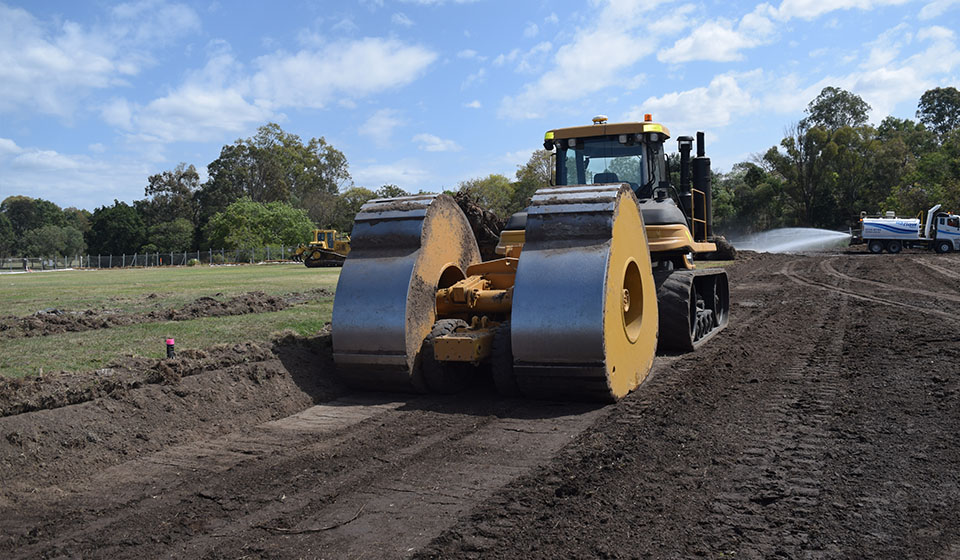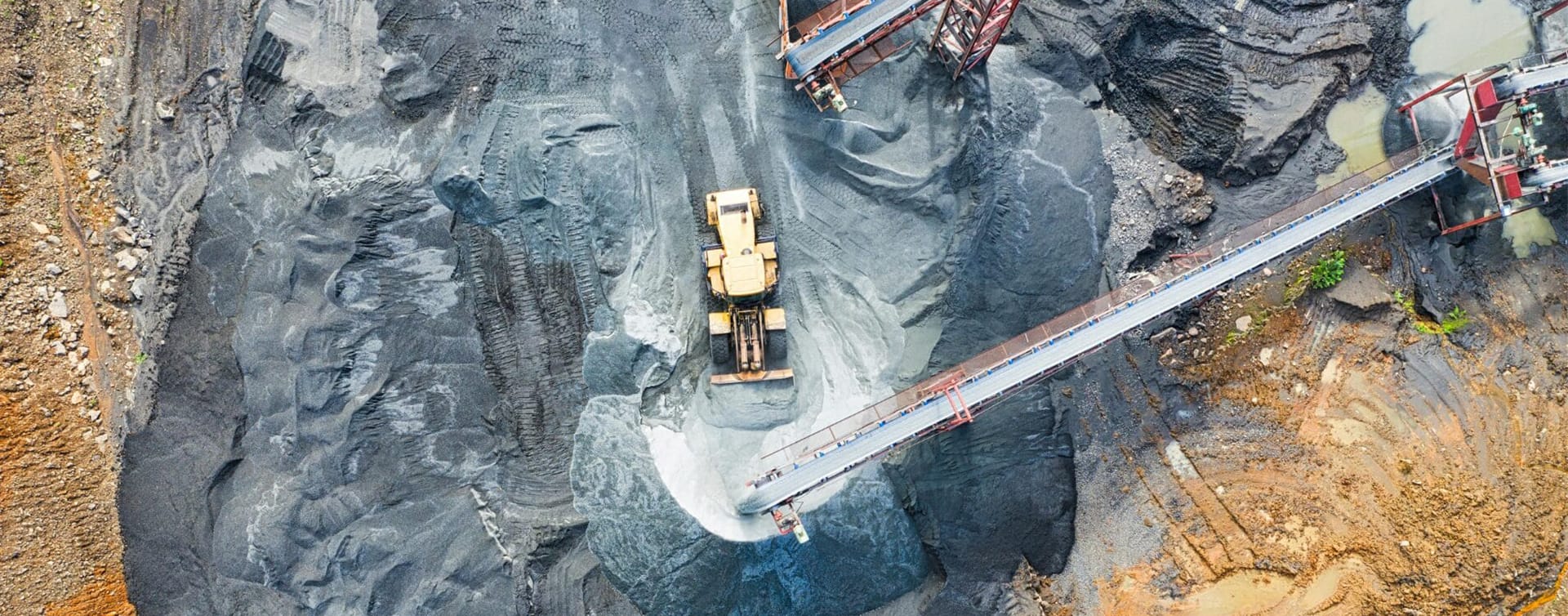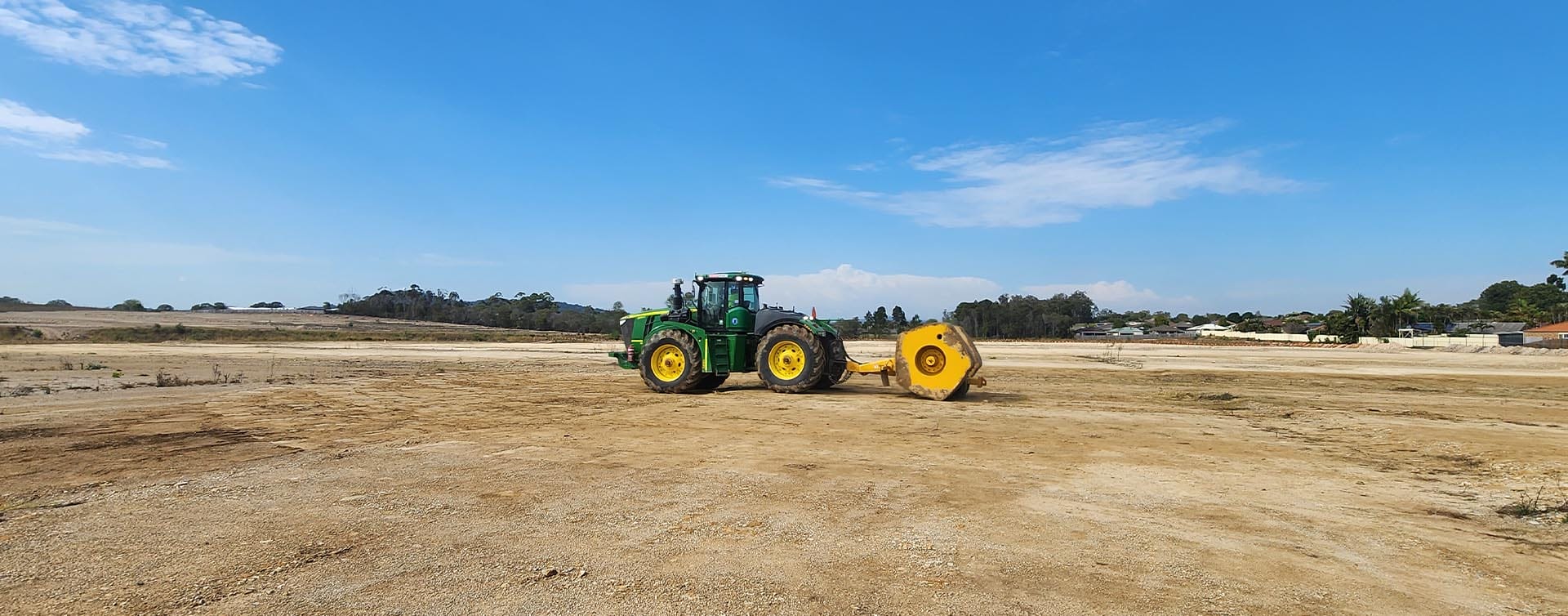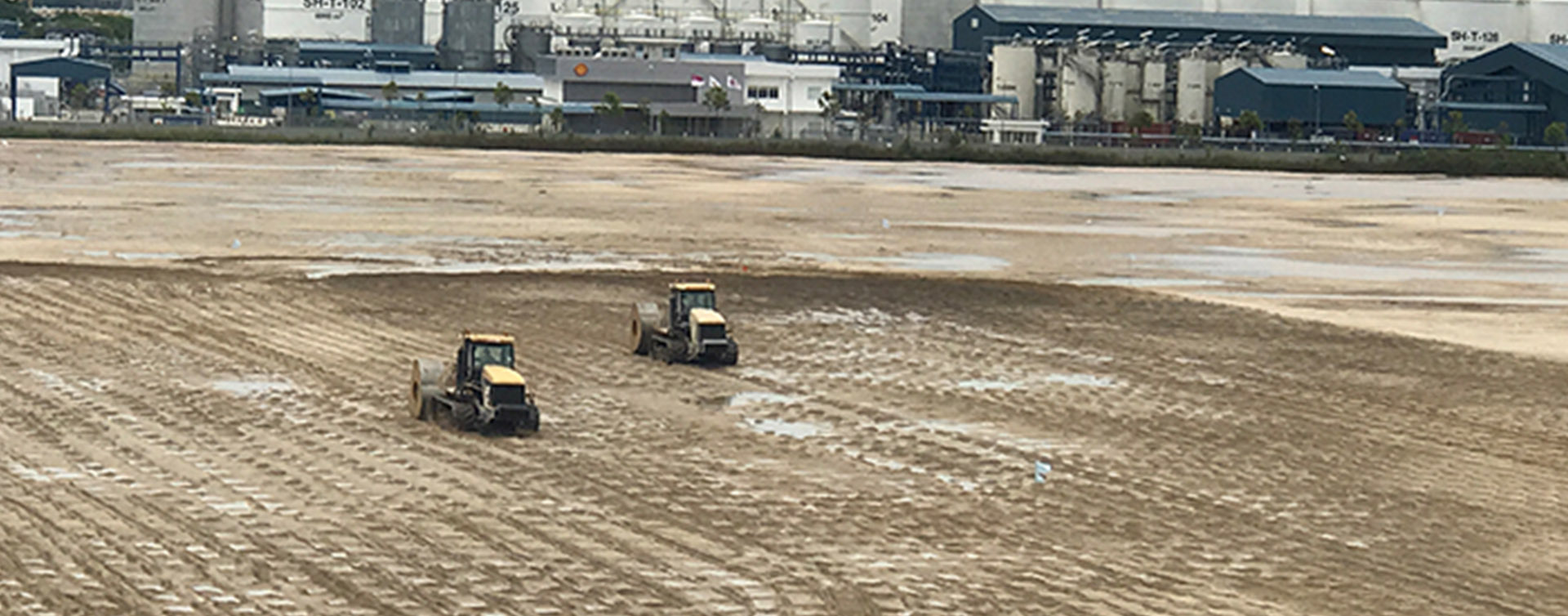Transforming Landfills with High Energy Impact Compaction
The Impact of High Energy Compaction in Modern Waste Management
Landfills, critical components of modern waste management systems, demand robust and precise engineering to ensure safe and efficient operations. High Energy Impact Compaction (HEIC), a ground improvement service offered by Landpac, offers a pivotal solution to the challenges inherent in landfill design and management.
HEIC enhances the soil’s engineering properties by using high-energy impacts to increase soil density, thereby improving its load-bearing capacity and stability. In the context of landfills, these enhancements bring about various benefits, including increased landfill volume, improved sealing capabilities, and overall operational efficiency.

Creating Extra Volume by Maximising Landfill Capacity
Landfills often struggle with capacity constraints. The more densely the waste can be compacted, the more volume is available for additional waste disposal. HEIC can significantly increase the density of the waste and underlying soil, allowing for more efficient use of landfill space and extending the landfill’s operational life.
Ensuring Safety and Compliance
Landfills produce various obnoxious gases as a part of waste decomposition, requiring effective sealing to prevent these gases from escaping into the environment. With HEIC, the soil used in landfill liners and covers can be compacted more thoroughly, creating a more effective seal against gas leakage. This not only enhances environmental safety but also helps landfills adhere to stringent regulatory standards.
Supporting Infrastructure
Landfill infrastructure, including roads, leachate collection systems, and gas extraction equipment, all require a stable foundation. HEIC improves the ground’s stability, reducing the risk of structural instability and subsequent maintenance needs, thereby ensuring smoother and safer operations.
Speed and Cost-Effectiveness
Compared to traditional compaction methods, HEIC is not only more effective but also faster and more cost-efficient. It can compact larger areas and to greater depths with fewer passes, saving both time and financial resources.

Promoting Environmental Responsibility
HEIC stands as an environmentally responsible choice in landfill management. By effectively compacting waste and soil, it maximises landfill lifespan, thereby reducing the need for new landfill sites. In addition, the enhanced sealing capability helps prevent environmental contamination from leachate and gases.
High Energy Impact Compaction provides an invaluable solution for the challenges faced in landfill design and management. By enhancing soil properties, Landpac helps to build more efficient, safe, and sustainable waste management systems, contributing to a healthier environment for future generations.
Contain contaminants with ease
Some materials are too hazardous to unearth, risking wider contamination if disturbed. These materials are also costly to remove. High energy impact compaction (HEIC) contains contaminated waste securely, deep beneath the surface so it doesn’t delay construction or harm the surrounding environment. Get in touch to learn more.
Latest news

High-Energy Impact Compaction in Australian Mining
From haul roads in WA to tailings dams in QLD, High-Energy Impact Compaction (HEIC) is reshaping ground improvement across Australia’s mining operations. Backed by Intelligent Compaction Measurement (ICM), HEIC delivers faster, deeper, and more reliable results, boosting safety, sustainability, and cost-efficiency in some of mining’s toughest conditions.

Understanding High Energy Impact Compaction (HEIC)
High Energy Impact Compaction (HEIC) revolutionises ground improvement with its ability to achieve superior soil density and stability. Unlike traditional methods, HEIC uses advanced rollers and compaction technology to penetrate deeper soil layers.

Laying the Foundation: Why ground improvement engineering matters
Ground improvement enhances soil stability and strength, reducing risks and costs in construction. Techniques like HEIC ensure efficient, sustainable solutions for safer infrastructure.
